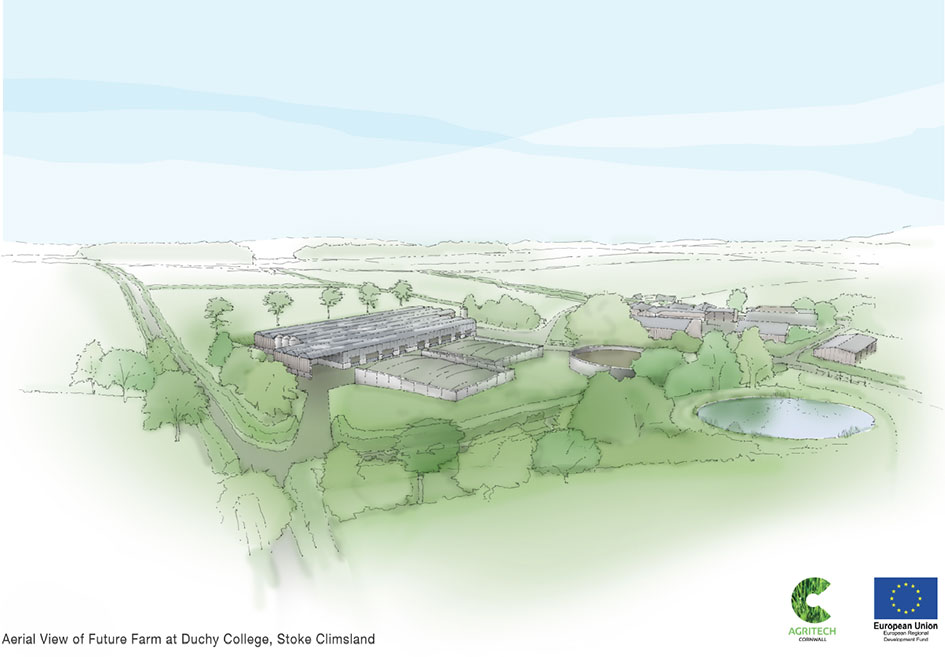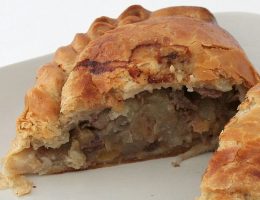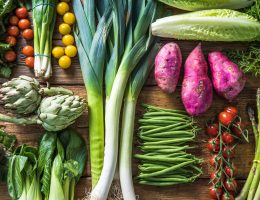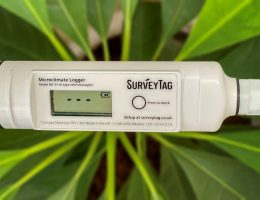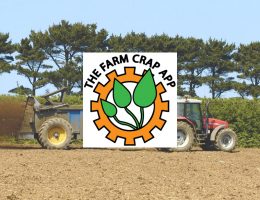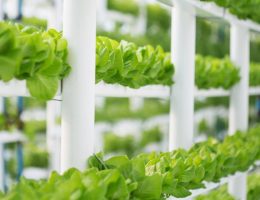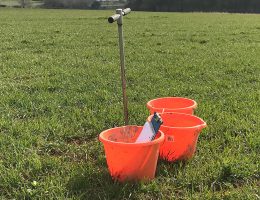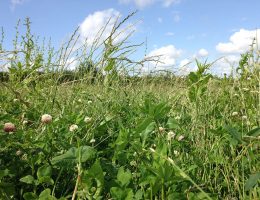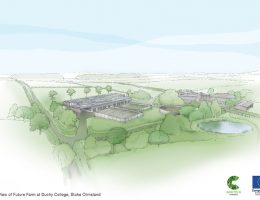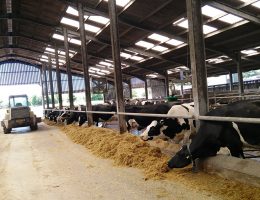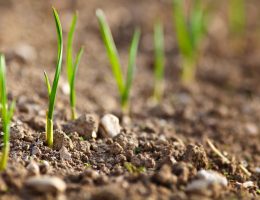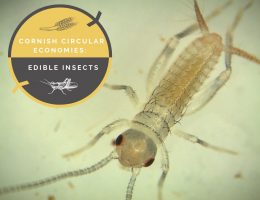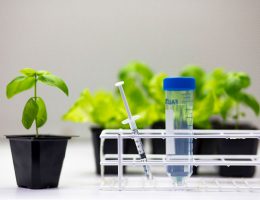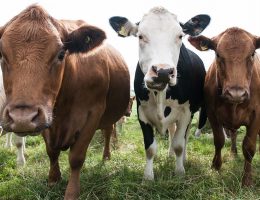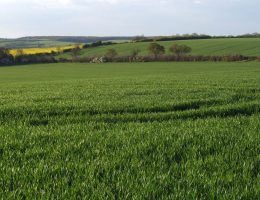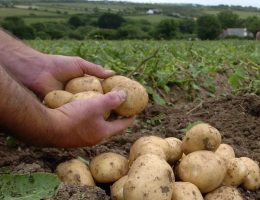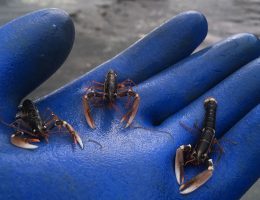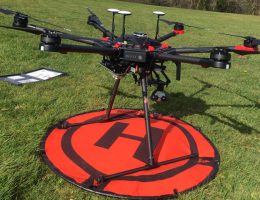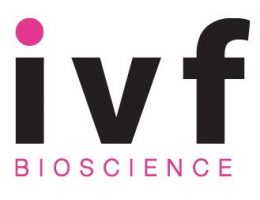Impact
The initial impact of the construction of ‘Future Farm’ (FF) was the appearance of a series of aesthetically pleasing 1950s–style ‘Dutch barns’ near Callington in the autumn of 2020. The building was indeed of Dutch design; but rather than storage for hay and straw, it was in fact the state-of-the-art ‘Future Farm’ dairy research facility at Duchy College.
As the principal physical asset arising from Agritech Cornwall, ‘Future Farm’ was developed to be not only a working farm, but also a teaching and dairy research facility. It was carefully designed to have a huge impact on the important South West dairy production industry – the most important sector within agriculture, equating to 31% of the region’s total agricultural output and 39% of national dairy output.
The use of high-quality synthetic translucent roof sheeting allowed improved daylight entry without extra radiant heat being created inside the building. Furthermore, its low weight compared to conventional roofing materials permitted the use of automatic mechanical ventilation systems to maintain optimum relative humidity. This precluded the requirement for a typical single span cow cubicle shed construction with its central ridge outlet to facilitate natural ventilation. This permitted a significant reduction in the steel required for construction and therefore reduced financial and carbon cost compared to a more conventional design in addition to the lower profile and visually appealing building.
Inside the building, the cow cubicles were designed using optimal dimensions from flexible materials to allow cows to stand up and lie down without fear of injury and with mattresses for maximum cow comfort. Animal welfare was further enhanced through the provision of an automatic feeding system capable of feeding a total mixed ration up to five times per day, which with the provision of optimal feed spacing and feed rail height, ensured that cattle always have access to high quality feed.
High standards of animal health are maintained through the use of the latest milking technology in the milking parlour including automatic cluster removal and flushing to reduce mastitis incidence. Rubber matting along with automatic scrapers and non-slip grooves in the concrete floors and slatted covers to slurry channels ensure hygienic conditions are maintained and lameness controlled.
The immediate impact on the dairy herd in terms of animal welfare has seen an increase in cows lying (from a sub-optimal 60% to an optimal 80%) and ruminating with improved rumen fill (score 3-4) following the move to FF*. In terms of animal health, herd somatic cell counts were reduced from a sub-optimal 178 000s/ml indicating significant mastitis infection to 62 000s/ml indicating extremely low mastitis infection.
*All Comparisons between October 2020 and October 2021 – herd moved in November 2021
The impact on production parameters includes an increase of 400 litres/cow per annum (7,900 to 8,300l), a milk protein increase from 3.26 to 3.38% and butterfat from 3.60 to 4.20%. This brought in an extra £40, 000 income for the unit. This is without taking into account the increased fertility (calving interval reduced from 414 to 399 days) and lowered culling rate (from 40% -double AHDB target- to 30%), the reduced feed usage, and an increased margin over purchased feed /litre. This links into a much improved carbon footprint/litre of milk produced.
Although Covid-19 precluded a large official opening of the facility, its impact is already demonstrated by a wide variety of farmer groups requesting to visit the facility e.g. local Grassland Societies, Young Farmer Clubs along with animal nutrition and breeding companies. Further evidence is the record number of students enrolling in autumn 2021 at Duchy College (the highest number ever).
*
Legacy
The legacy of the 220-cow Future Farm Dairy Systems Research Platform arises from the development of the existing commercial dairy into a specialist and purpose built research facility. It will facilitate the segregation of the herd into three groups or mini-herds, which can be managed or fed different diets for research purposes. The infrastructure including a LoRaWAN system to connect sensor-linked devices within the facility and across the wider College Farm, enables inputs and outputs to be measured, recorded, compared and reported for each mini herd. The unique feature of the set-up is its ability to segregate and store slurry separately from each of the groups. This enables businesses and research institutions to develop, trial, pilot and market test new products and services in the application of technology to animal health and welfare in dairy cattle and nutrient recycling. Future Farm is capable of full profitability, sustainability, nutrient and animal health and welfare analysis within its three parallel mini-herd management systems.
FF enables the demonstration of best practice, analysis of slurry and forage samples, the execution of field trials around the application of organic amendments, run-off and sward composition and the hosting of evidence-based farmer knowledge exchange events. The facility allow farmers to access cutting edge science to track nutrients in manure from source to end use accurately and underpin the development of strategies aimed at improving dairy farm efficiency, reduce its carbon footprint and deliver other environmental enhancements.
FF directly supports the dairy sector to engage with research, and interacts with a range of local, regional, national and international organisations including:
- The Centre for International Excellence in Livestock (CIEL), which is closely linked to the development. Duchy College has ‘Category A’ membership of CIEL which provides a focused gateway to 12 world-class national research centres to develop industry-needed solutions as well as commercial trial farms for real world results.
- The wide scale existing knowledge exchange network of milk producers, both through the Agriculture and Horticulture Development Board (AHDB) and directly across the south west (10,000+), developed through the work of Duchy College’s Rural Business School (RBS).
- Resources to monitor the economic viability and efficiency of milk and other agricultural production systems through the RBS’s Farm Business Survey team (part of Rural Business Research).
- 50 South West farm veterinary practices across the six SW counties.
- The dairy supply chain including agronomists, animal nutritionists, breeding specialists, consultants and milk processors.
- The next generation of dairy farmers, managers scientists, and staff through educational programmes ranging from apprentices through to Masters level studies.
- The Dairy4Future network of 10 experimental dairy farms across Western Europe.
- Engagement with a network of regional research partners i.e. Rothamsted Research, University of Exeter and University of Plymouth through the Agritech Cornwall project.
- A broad range of SMEs from across the agri-tech sector.
- Open up opportunities to engage at a local, regional, national and international level with ground-breaking research opportunities.
The first major research initiative to be delivered utilising the facility, secured through a successful bid with Cornwall Council has been the Intereg-funded Agriculture Bas Carbon Dairy (ABCD). This involves evaluating different feeds on dairy performance and greenhouse gas emissions (GHG) from the cows and the slurries and an associated knowledge transfer programme to reduce the carbon footprint of Cornish dairy farmers.

